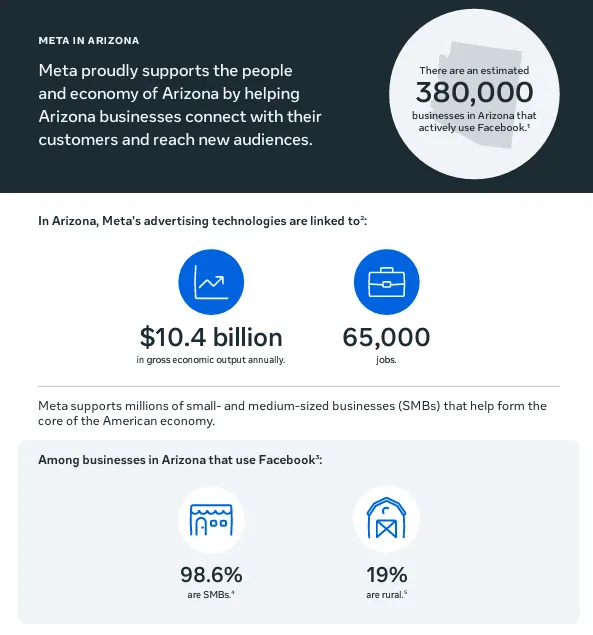Meta has released a new report outlining its contributions to the U.S. economy, a move that aligns with its ongoing efforts to increase political influence and secure future business opportunities.
This latest report, similar to one the company released in 2022, presents data on Meta’s economic footprint across the country. It includes detailed state-by-state figures to emphasize the platform’s localized impact — data that could prove valuable in persuading lawmakers to support its interests.
According to Meta:
“We’ve released findings from a recent study showing that our personalized advertising technologies supported nearly $550 billion in U.S. economic activity and 3.4 million jobs in 2024.”
These figures mark a 32.5% rise in economic activity and a 10% increase in employment since the 2022 study. Meta also noted that over 35 million U.S. businesses use Facebook and Instagram monthly, while around 2 million advertise through its platforms to reach new customers.
Meta’s vast scale and economic relevance are no secret. However, the timing of this report reflects a strategic push to gain favor amid mounting regulatory challenges:
- The FTC is currently trying to force Meta to divest Instagram and WhatsApp, citing antitrust concerns.
- Several states are introducing laws to limit social media use among minors.
- Upcoming legislation on AI could affect Meta’s investments and growth in that space.
- Ongoing scrutiny in Europe has led to significant fines, and Meta may be seeking support from U.S. officials to push back.
By presenting quantifiable economic benefits — especially those tailored to individual states — Meta aims to strengthen its position with lawmakers who may soon vote on relevant issues.
The report also promotes the effectiveness of Meta’s ad tools, stating:
“Millions of businesses, from small local shops to large brands, use our ad systems to connect with customers. We’ve upgraded our AI tools to make ads more relevant and cost-effective, which also improves user experience.”
Clearly, Meta is making a case not just to the public, but more so to policymakers, showcasing the potential local and national setbacks if the company’s operations were constrained.
While other tech companies like TikTok have made similar appeals without much success, Meta’s circumstances are distinct. Its established presence and detailed data might give it more sway in future legislative discussions.
For those interested, Meta’s full economic impact report is available on its website.



